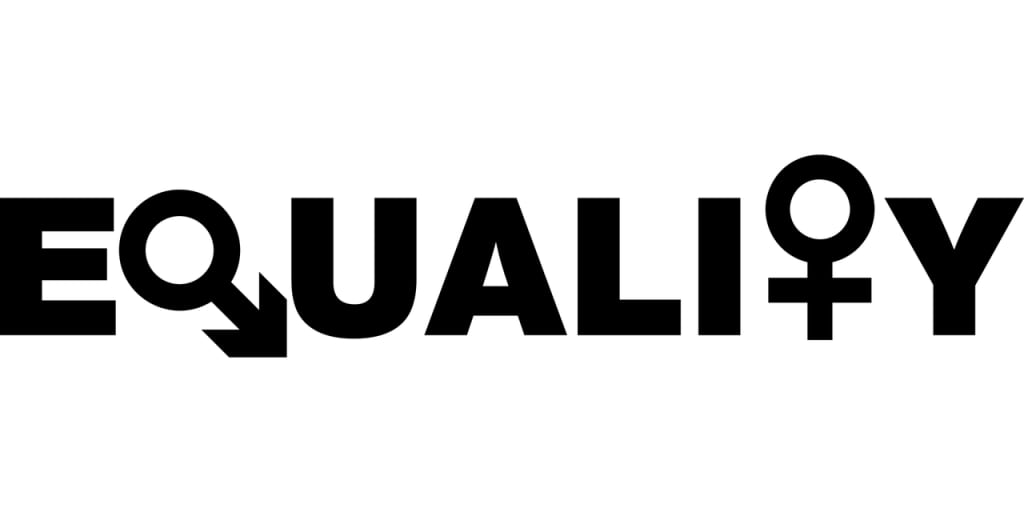What’s Wrong with Equal Pay Day
Let's have a closer look...

Friday, November 10 marks the Equal Pay Day in the UK, which means that from now on, all women in the UK will work effectively for free for the rest of 2017. That sounds awful. And it's also really bad that currently the pay gap, based on hourly earning, is at 9.1 percent. (1)
It just makes me angry because I believe that women and men should be paid for the same work the same amount of money. But I feel that these statistics muffle other underlying issues and quite frankly, they are mixing apples and pears.
So, why is all that? And how we can address it? Well, that’s where the problem lies. It is so easy to say: "According to the Fawcett Society the pay gap is largely the result of differences in caring responsibilities, women tending to cluster in low-skilled and low-paid work, but also – in some instances – outright discrimination,” as the Independent summed it up. (2)
Difference in Caring Responsibilities
Well, that’s the obvious, no? In the UK, Statutory Maternity Pay (SMP) for eligible employees can be paid for up to 39 weeks, usually as follows: the first 6 weeks: 90% of their average weekly earnings (AWE) before tax; the remaining 33 weeks: £140.98 or 90 percent of their AWE (whichever is lower). (3) But, it is possible to share parental leave between parents. (4) It is something quite new but totally possible. Apparently, in 2015, research indicated that only 1% men opted to take shared parental leave as it would have a bad effect on their career. (5)
Does a year off have a bad effect on your career? Actually, if you called it gap year, it doesn’t sound that bad. If you said you volunteered in a shelter or somewhere, does it sound bad? I don’t think so. I think a year off might be hard to explain to recruiters if they live their sad lives in their little boxes, but otherwise… it’s just how you put it. But of course, someone will probably need to care for the little one and often it might be the parent. One simple reason: nowadays people often have children when they want to have them, so it is likely someone wants to take care of them. The very same Independent article states that especially women in their late thirties face significant pay gap. Well, maybe their priorities shifted? Maybe they thought, hell, my child will be small for next couple years while I will have to work for next 40.
Of course, the problem is if you are judged by what people expect of you, not promoting you because you might end up pregnant, might stop working for several years… Well, let’s put it this way: men might end up having a mid-life crisis, leaving their work, and going to get drunk on some tropical island because everything in life is about imagination.
As a foreigner, I was a little shocked about the culture of stay-at-home mums. That there is actually this possibility, that it’s OK to say that you stayed at home to care for the family. Of course, that has the downside that you might be judged if you don’t — or judged by your employer that you will.
But let’s not forget that one ugly truth in the UK: the cost of childcare (and the funny hours). I mean, if it costs about £1000 per month, surely you have to make enough money to make it worthwhile. Plus, the nerves to work around it (as they are often open 9 to 5).
Women Tending to Cluster in Low-skilled and Low-paid Work
This statement makes it look like all women are cleaners or cashiers. Not that these jobs are not needed, but I think that in some low-skilled jobs a muscle is needed; not all low-skilled jobs are low-paid (just look at labourers), some high-skilled jobs are low-paid, too — have you checked how much a nurse is paid? I am sure these are not the only examples.
Indeed, there is also the problem of not encouraging women into higher-paid and higher-skilled jobs. I came across girls saying that something is not what girls do. Utter rubbish, of course.
Interestingly, in 2016 there were a lot of articles about the lost boys — the white working class men left behind. (6) A third more girls are going for higher education. So, what’s the right ratio? If we assume that 50 percent of the population are girls, it should be 50 percent. Maybe we need to have a look at the whole education system. In the UK, I know a lot of people who think having GCSE means they have a qualification. I was rather surprised by the notion, as in my country it means you finished basic education. That’s it — no extra skills. Not everyone wants to spend extra years in a school, but they simply need more skills, whatever they might be. There is a difference between being a labourer and being a builder. There is a difference between working in retail or having extra licence such as HGV driver licence. You can be a skilled tradesperson, but you have to get to learn those skills. Having GCSE means that ideally you know how to read, write, and count. That’s not giving you much options in life and thinking that you will learn all skills on the job might not be realistic. Or it will put you in serious disadvantage and limit your options.
Outright Discrimination
That’s the part that is a problem: if you don’t get a job because you are a woman, if you don’t get promoted — and somehow that does happen. You might not get that promotion, you might not get that pay raise.
Across all organizational levels, a study from North America found that women are a whopping 15% less likely than men to get promoted. (7) The researchers say that, at this rate, it will take more than a century to achieve gender parity in the C-suite.
But this very study (8) says also:
- Fewer women than men are aiming for the very top. Among senior managers, 60% of women said they want to be a top executive, compared to 72% of men. Women were also more likely to cite stress and pressure as one of the biggest reasons for not wanting to hold top positions.
- Women often start out in line roles (defined as positions with profit-and-loss responsibility and/or focused on core operations), but by the VP level more than half of women hold staff roles (positions in functions that support the organization like legal and IT). Men, on the other hand, are more likely to hold line roles at every level of an organization. This difference poses a potential problem because line roles frequently feed into senior leadership.
- There's a common misconception that women who start families are subsequently less ambitious in their careers. But mothers in the survey were 15% more interested in being a top executive than women without children.
That’s what we should be talking about. That maybe not everyone is interested in reaching the top but if you are, you might be disadvantaged.
Feminism is about choice.
I am not sure what to do about it. For me, feminism is about having a choice, about giving a girl tools to make an informed decision and then respecting it. Not all girls are interested in working in STEM, not every girl’s dream is to be perfect mother and wife. Another taboo — not every woman wants to reproduce. Not every woman wants to be CEO or run their own company. I certainly don’t want to. I changed careers from engineering to marketing and had a time when my salary went down. I am not sure if I want to be a marketing director managing other people. I have spent years contracting and quite enjoyed to have time off between contracts which means that statistically my salary went down. Indeed, what I am doing might not be interesting or possible to others. There will be always low-skilled low-paid jobs and we should just make sure that minimum wage enables people to have a decent life. I just think that when we look at Equal Pay Day, we might forget the little details behind.
My Sources
- "Equal Pay Day: Five statistics that sum up how much progress still needs to be made"
- "UK lags behind dozens of developed countries in WEF gender gap report"
- "Statutory Maternity Pay and Leave: employer guide"
- "Shared Parental Leave and Pay: employer guide"
- "Tiny proportion of men are opting for shared parental leave"
- "Our education system is prejudiced against white, working class boys – it's time to empower them"
- "Getting to gender equality starts with realizing how far we have to go"
- "A new study from Lean In and McKinsey finds exactly how much more likely men are to get promoted than women"
About the Creator
Zlatka Larsen
I write mostly short stories and other fiction but I dip my toes into other topics such as feminism, popular vulture and anything that catches my interest.
Find me on Facebook www.facebook.com/zlatkalarsen






Comments
There are no comments for this story
Be the first to respond and start the conversation.